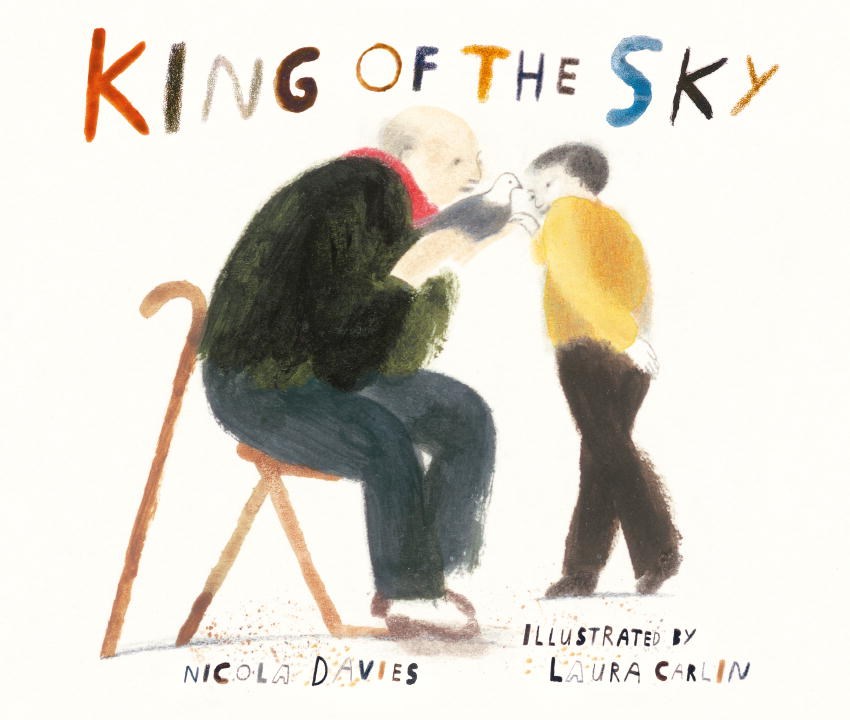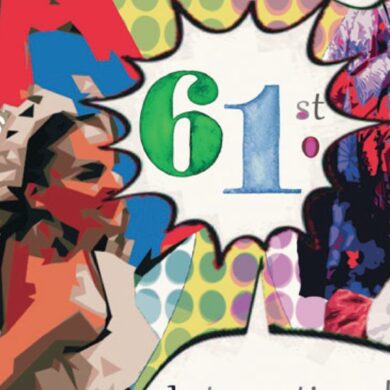A soulful sidewise gleam at the loneliness of the immigrant experience.
by Maria Popova
“You only are free when you realize you belong no place — you belong every place,”Maya Angelou told Bill Moyers in their magnificent 1973 conversation. But what do freedom and belonging mean in an age when immigration — that is, institutionalized otherness, divisiveness, and exclusion — is remapping humanity’s geopolitical and emotional landscape?
That is what zoologist and author Nicola Davies and illustrator Laura Carlinexplore with uncommon tenderness in King of the Sky (public library) — the lyrical story of a young immigrant boy, trapped in unbelonging after his family leave their native Italy for the gloomy and forlorn hills of Wales.
His hollowing loneliness spills from the pages under Davies’s poetic pen and Carlin’s soft, deeply alive illustrations:
It rained and rained and rained.
Little houses huddled on the humpbacked hills.
Chimneys smoked and metal towers clanked.
The streets smelled of mutton soup and coal dust.
And no one spoke my language.All of it told me This is not where you belong.
Throughout the story, we see the boy’s family — his mother, his infant sister — only as a ghostly and fragmentary presence, further contouring his all-consuming sense of isolation. Dislocated and desolate, magnetized by nostalgia, he finds solace in the improbable friendship of his elderly neighbor — a retired coal miner who spends his days caring for and training racing pigeons.
Just one thing reminded me of home — of sunlight, fountains, and the vanilla smell of ice cream in my nonna’s gelateria.
It was Mr. Evans’s pigeons in their loft behind my house, cooing as if they strutted in St. Peter’s Square in Rome.
Every day, the boy visits Mr. Evans and watches his pigeons soar “above the chimneys and the towers, up to where the sky stretched all the way to Italy.” One day, Mr. Evans puts a grey pigeon with a head “whiter than a splash of milk” into his young friend’s hands — a pigeon he believes is going to be a champion, one whose “eye blazed with fire.” He asks the boy to name the bird. Re del Cielo, he replies in an instant — King of the Sky.
The boy begins accompanying Mr. Evans on train trips, releasing the pigeons at various stations along the line to let them race back home, taking them a little farther each time. Each time, boy and man return to the loft, eating Mrs. Evans’s Welsh cakes as they await the pigeons’ steadfast return.
It never took them long.
From places far away, places that they’d never been, the pigeons flew home straight and fast as arrows. But the pigeon with the milk-white head was always last.
Still Mrs. Evans said he’d be a winner.
Aged and frail, Mr. Evans grows weaker by the day. By racing season, unable to leave his bed, he entrusts his young friend with putting the race rings on the birds, taking them to the train station, and logging their return on his clipboard.
The pigeons’ winnings rake in, but none for King of the Sky. Still, Mr. Evans asserts with unfaltering confidence that the white-headed bird is destined for victory — if only they can find the right race for him. “He’s got the wings for distance,” he tells the boy.
One day, the perfect race for King of the Sky emerges — the bird would go all the way to the boy’s native Rome by train, then race more than a thousand miles back to the humble Welsh loft.
As the race commences and King of the Sky starts making his way back from Italy, rain and lightning envelop the land. For two days and nights, the boy awaits his champion’s return, but the pigeon is nowhere to be seen.
I sat beside y friend’s bed, and told him that perhaps the sunlight and the fountains and the vanilla smell of ice cream from a thousand gelaterie had made our pigeon want to stay.
“No!” said Mr. Evans. “That will only tell him… This is not where you belong.”
At last, the downpour ends and the boy runs outside to squint at the sky, into the clouds of fragile hope. And there it is — “a speck… a blob… a bird.” His King of the Sky — a soaring alter ego for the displaced boy trying to make a home in a new land, trying to fathom the depth and meaning of belonging.
Twelve hundred miles he’d flown, from somewhere far away he’d never been. Steered north and west, finding his direction from the sun and the force that guides a compass needle. Flown until he saw the shape of humpbacked hills, the lines of little houses and the chimneys, heard the clanking towers, smelled the soup and coal dust.
Flown down into the arms of the smiling, crying boy — the boy who knew at last that he was home.
Complement the soulful King of the Sky with The Blue Songbird — a very different but kindred avian-inspired parable of homecoming — and Carson Ellis’s illustrated meditation on the many things home can mean, then revisit physicist Freeman Dyson on how immigration effects a loneliness in time as well as space and Hannah Arendt on the immigrant plight for identity.
Illustrations courtesy of Candlewick Press; photographs by Maria Popova





















